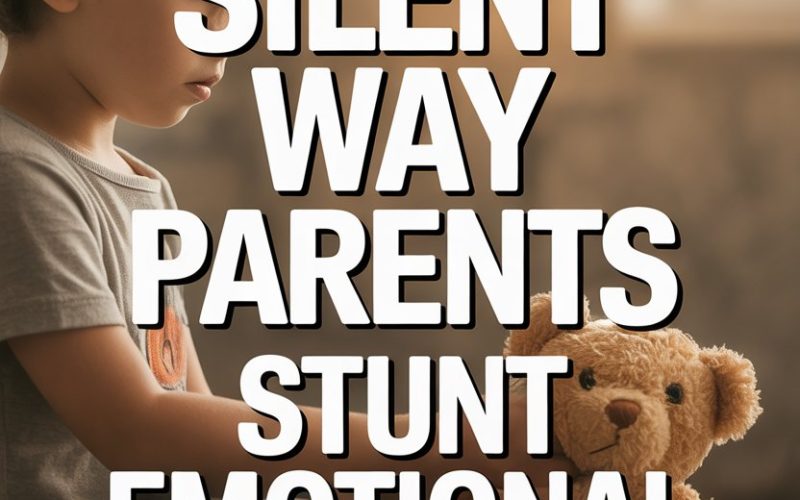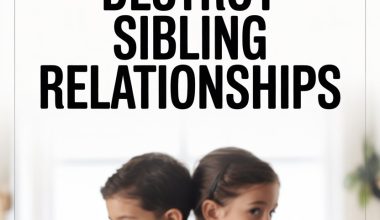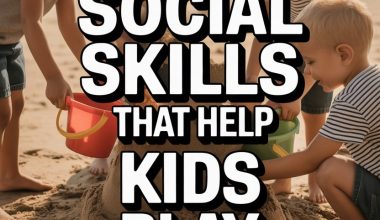Ever looked at your child, melting down over the colour of a cup, and thought, “How am I supposed to build a resilient adult out of this tiny ball of feelings?” You’re not alone.
Parenting is a constant juggle between nurturing and simply surviving until bedtime.
But even the most loving mums and dads can quietly (and accidentally) throw a spanner into the works when it comes to emotional development.
Here’s the sneaky, silent way we halt our kids’ emotional growth—and what you can do about it before another dinner is ruined by a pea rolling off the plate.
The Unseen Power of Emotional Dismissal
Consider this: Your child falls off the climbing frame and bursts into tears. You’re running late. You say, “You’re fine! Brush it off!” It seems helpful, but what’s really happening is emotional dismissal.
This doesn’t mean you’re heartless. In fact, most parents do it because they’re trying to help their children move on from pain.
Trouble is, repeated dismissals—whether it’s “Stop crying, it’s nothing,” or “Don’t be silly, there’s nothing to be scared of”—send one clear message: Those feelings aren’t valid or welcome.
Over time, children learn to bottle up emotions, distrust what they feel, or believe that showing sadness or fear is unacceptable.
According to research, children whose feelings are routinely dismissed are more likely to struggle with anxiety, have difficulty forming close relationships, and develop poor self-esteem.
Why We Do It (And Don’t Realise)
No one wakes up and thinks, “Today I shall crush my child’s emotional spirit.” If you grew up in a “stiff upper lip” household, it’s deeply ingrained to brush off big feelings.
Sometimes it’s impatience, sometimes exhaustion, sometimes a genuine wish to protect our kids from sadness.
Parenting experts like Dr. John Gottman point out that parents often fear if they acknowledge their child’s distress, it will make things worse.
Actually, the opposite is true. Kids need help naming and processing feelings, not sweeping them under the rug with yesterday’s mismatched socks.
Signs You Might Be Silently Stunting Emotional Growth
Before panic sets in, every parent has been guilty of these at some point:
- “There’s nothing to be scared of.”
- “Big boys/girls don’t cry.”
- “Don’t be a baby.”
- Changing the subject when things get uncomfortable.
- Distracting your child from upset with a screen, snack, or shiny object.
If you’re nodding along, welcome to the club—membership includes everyone who’s ever parented a tired toddler.
What Happens When Kids Don’t Learn Emotional Skills?
A child who grows up not knowing how to recognise or express feelings has a tough time managing stress.
Emotional stunting can sneak up in surprising ways: outbursts over small frustrations, controlling or aggressive behaviour, trouble making friends, or an inability to apologise or empathise.
Later down the road, these patterns show up in grown-up relationships too.
Difficulty communicating, avoiding conflict, and mistaking vulnerability for weakness—all can trace roots back to early emotional dismissal.
According to American Psychological Association, kids who aren’t supported emotionally are more likely to experience depression and anxiety as teens and adults.
What Does Emotional Coaching Look Like in Real Life?
Sounds fancy, but emotional coaching is just helping your child recognise, name, and deal with their emotions. It isn’t therapy on the sofa surrounded by tissues.
In fact, it can happen anywhere. Even at the supermarket when your child is howling over the wrong brand of cereal.
Try this next time:
- Name the feeling: “You look really frustrated that we can’t get the chocolate cereal.”
- Validate it: “It makes sense to be upset. I sometimes feel that way when I can’t have what I want.”
- Set boundaries: “We’re buying the cereal we agreed on, but it’s okay to feel disappointed.”
- Offer comfort: “Come here for a hug when you feel ready.”
Kids who get this kind of support learn to trust their feelings, recover quicker from disappointment, and (miracle of miracles) eventually learn to regulate themselves.
Why Emotional Dismissal Feels Easier (But Is Harder in the Long Run)
The truth? Emotional coaching takes more time. Shutting things down with a brisk “You’re fine!” is tempting, particularly after a long day involving traffic jams, nappy explosions, and a search for elusive school permission slips.
But here’s the rub: Unacknowledged feelings don’t just go away. They tend to pop back up, often louder and more inconvenient than before.
Children who know they’ll be heard are less likely to escalate meltdowns, because they feel safe. The investment pays off—think of it as emotional compound interest.
Everyday Ways to Nurture Emotional Growth
Good news: You don’t need a degree in child psychology or a Pinterest-perfect calm-down corner.
- Make time for feelings, not just fixes. If your child is upset, pause before offering solutions. Try, “Do you want a cuddle or to talk about what happened?”
- Use stories and books as conversation starters. Even preschoolers can talk about why the hungry caterpillar was so cross.
- Label your own feelings in front of your kids. “I’m disappointed we missed the bus, but I know the next one will come soon.”
- Apologize when you lose your cool. “I was angry and shouted. I’m sorry. Next time I’ll try to tell you how I’m feeling.”
The more you practice, the easier it gets—really.
How to Break the Cycle If You Weren’t Raised This Way
Many adults never learned to talk about feelings growing up.
The good news? It’s never too late to start. Start small.
You might feel a bit silly at first, but kids don’t expect TED Talk-level emotional literacy.
If you get stuck, there are great resources out there, such as Emotion Coaching: The Heart of Parenting and the Big Life Journal for activities and conversation prompts.
If you find it extra tough, speaking to a child psychologist or family counsellor can help you untangle old habits and build new ones. No shame in outsourcing a little support.
Screens, Distraction, and the Art of Avoidance
Kids aren’t the only ones desperate for distraction. Grown-ups reach for their phones to avoid awkward feelings, too. It’s normal.
But constant distraction—popping Peppa Pig on the moment a child looks sad—robs them of the chance to sit with and process feelings.
Instead, try sitting quietly with your child, even if it’s uncomfortable. A gentle “I’m here if you want to talk” goes a long way. Small steps build emotional stamina for both of you.
When Emotional Dismissal Is About Parental Anxiety
Sometimes, it’s not just about impatience. Watching a child in distress can feel unbearable, especially if you’re sensitive or anxious yourself. You want to rescue them, not see them suffer.
But children don’t need rescue—they need a safe harbour.
Allowing them to feel sadness or frustration, with your support, shows them those emotions aren’t dangerous. They can handle them, and so can you.
If you notice your own anxiety kicking in whenever your child gets upset, try a few slow breaths or step away for a moment if you need to. You’re modelling self-regulation, not perfection.
Does This Mean I Let My Child Scream About Broccoli Forever?
Rest assured: Emotional validation isn’t the same as permissiveness. You can set clear boundaries while still acknowledging feelings. “I know you’re angry we’re having broccoli. You don’t have to eat it, but we’re not having chips tonight.”
Consistency is key. Children thrive on knowing the grown-ups are in charge, but that their feelings matter.
The balance is where the magic happens.
Guilt, Regret, and the Parenting Rewind Button
If all this is ringing alarm bells, take heart. No parent gets it right all the time. We’ve all snapped “Get over it” at least once (or, you know, fifteen times before breakfast).
What matters most isn’t never making mistakes, but being willing to repair them.
Saying, “I wish I’d listened better when you were sad yesterday. Can we talk about it now?” teaches your child that relationships can survive mistakes, and that feelings don’t simply vanish into thin air.
Apologies, it turns out, are emotional superglue.
What Kids Really Need to Grow Up Emotionally Healthy
Children aren’t after perfection. They want to be seen, heard, and taken seriously.
A well-timed cuddle, a listening ear, and the freedom to feel all their feelings—these are the foundations of true resilience.
If you catch yourself tempted to rush your child through a meltdown, to hush their big feelings, or to distract away every disappointment, pause.
Notice your own response.
Remember: you’re not just raising a child, you’re raising a future adult who can handle whatever life throws their way.
And if you need a minute in the pantry with a biscuit before you can manage it—well, that counts as self-care.




